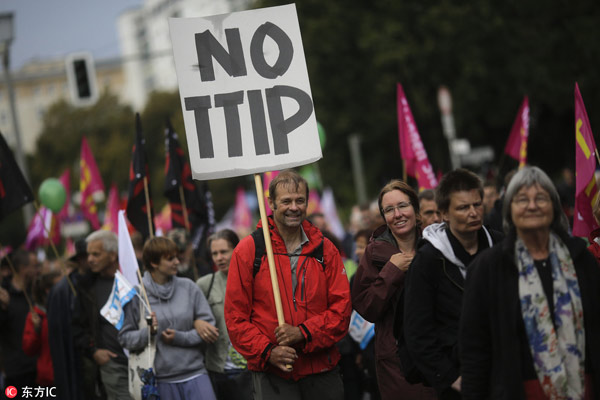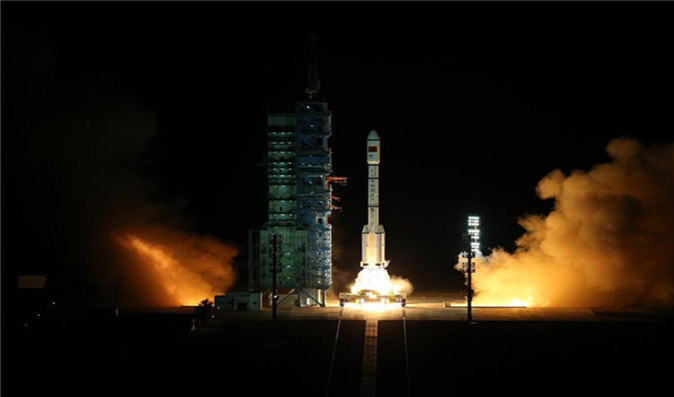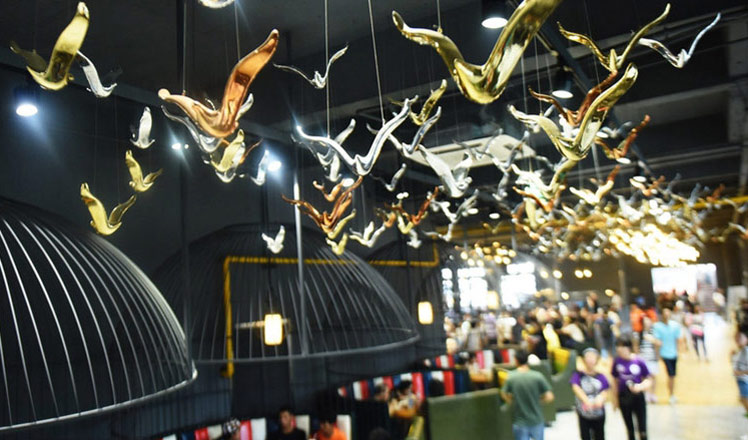Anti-TTIP protesters take to streets in Germany
Updated: 2016-09-18 09:22
(Xinhua)
|
||||||||
 |
|
Demonstrators protest against the planned Transatlantic Trade and Investment Partnership, TTIP, and the Comprehensive Economic and Trade Agreement, CETA in Berlin, Sept 17, 2016. [Photo/IC] |
BERLIN - Hundreds of thousands of protesters against two free trade deals across the Atlantic took to streets in seven German cities on Saturday, showing their great concerns about interests losses.
Under the slogan "For a fair world trade", the demonstrators took to streets in Berlin, Frankfurt, Hamburg, Cologne, Leipzig, Munich and Stuttgart.
Organizers estimated that 320,000 people would participate the rallies, while the police said the real turnout was smaller.
Waving banners reading "STOP TTIP", "STOP CETA", protesters expressed their worries about the Transatlantic Trade and Investment Partnership (TTIP), a free trade pact between the United States and the European Union (EU), and the Comprehensive Economic and Trade Agreement (CETA), a deal between the EU and Canada.
Opponents feared that the deals would lower consumer and environment protection standards in Europe, and lead to job losses.
Meanwhile, the business believed free trade deals across the Atlantic would benefit economies on both sides of the ocean as they could reduce red tape and lower transaction costs.
"Most of the objections were unjustified from the outset. We continue to see great opportunities offered by the creation of the largest free trade area in the world for our country," said Anton F. Boerner, head of German exporters' association BGA, referring to the TTIP agreement which was scheduled to start a new round of negotiations in October.
The CETA agreement was reached in 2014, and set to be signed next month.
A recent survey found that about 28 percent of Germans doubted the two agreements' benefits. 52 percent believed they would weaken standards and result in the import of defective products.
- Merkel faces setback in Berlin vote due to migrant fears
- Anti-TTIP protesters take to streets in Germany
- Death toll of Friday's suicide blast in NW Pakistan rises to 36
- Explosion rocks Manhattan neighborhood, at least 25 hurt
- In photos: Explosion rocks Chelsea in New York City
- UN General Assembly kicks off 71st session

 China launches second space lab into orbit
China launches second space lab into orbit
 Riding on smart cycles in Nanjing city
Riding on smart cycles in Nanjing city
 Britain records warmest September day since 1911
Britain records warmest September day since 1911
 Island retreats you may not want to miss for holidays
Island retreats you may not want to miss for holidays
 Industrial-style canteen surprises university students
Industrial-style canteen surprises university students
 Cute animals share a bite of moon cake festival
Cute animals share a bite of moon cake festival
 Orphaned Chinese marries American at SOS village
Orphaned Chinese marries American at SOS village
 French royal porcelains shine in Xi'an
French royal porcelains shine in Xi'an
Most Viewed
Editor's Picks

|

|

|

|

|

|
Today's Top News
Trump outlines anti-terror plan, proposing extreme vetting for immigrants
Phelps puts spotlight on cupping
US launches airstrikes against IS targets in Libya's Sirte
Ministry slams US-Korean THAAD deployment
Two police officers shot at protest in Dallas
Abe's blame game reveals his policies failing to get results
Ending wildlife trafficking must be policy priority in Asia
Effects of supply-side reform take time to be seen
US Weekly

|

|







